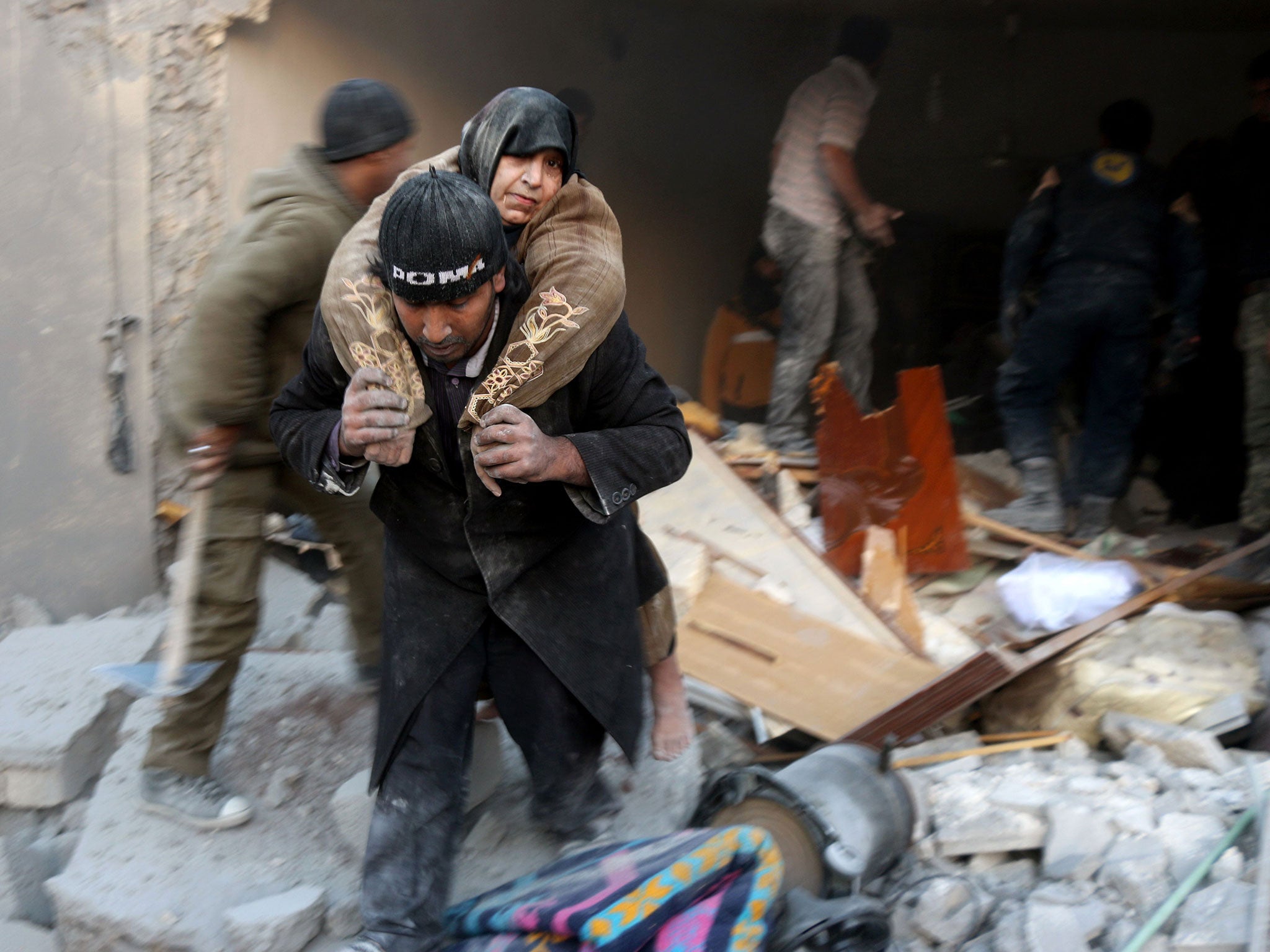Understanding the Syrian conflict

Your support helps us to tell the story
From reproductive rights to climate change to Big Tech, The Independent is on the ground when the story is developing. Whether it's investigating the financials of Elon Musk's pro-Trump PAC or producing our latest documentary, 'The A Word', which shines a light on the American women fighting for reproductive rights, we know how important it is to parse out the facts from the messaging.
At such a critical moment in US history, we need reporters on the ground. Your donation allows us to keep sending journalists to speak to both sides of the story.
The Independent is trusted by Americans across the entire political spectrum. And unlike many other quality news outlets, we choose not to lock Americans out of our reporting and analysis with paywalls. We believe quality journalism should be available to everyone, paid for by those who can afford it.
Your support makes all the difference.The civil war in Syria has evolved into a series of alliances on the ground with outside powers increasingly drawn into the conflict, backing opposing sides, but also nominal allies who often turn on each other.
The five-and-a-half-year conflict has killed hundreds of thousands of people and displaced 11 million others, fuelling the refugee crisis.
The Syrian regime
Bashar al-Assad’s regime is backed by Russian air power and Iranian and Hezbollah Shia militias on the ground.
It also receives the backing of some Kurdish factions and tribal Arab militias opposed to the rebels.
Last week, the UN’s Syria envoy, Steffan de Mistura, left Damascus with a warning that time was “running out” amid intensifying military operations in Aleppo.
“By Christmas ... due to military intensification, you will have the virtual collapse of what is left in eastern Aleppo; you may have 200,000 people moving towards Turkey – that would be a humanitarian catastrophe,” he said.
The regime has been accused of killing more civilians than Isis and has been severely criticised for indiscriminately using barrel bombs on civilian areas.
Isis and Jabhat al-Nusra
Sunni Gulf states, especially Saudi Arabia and Qatar, have been accused of backing Islamist extremists, Isis and Jabhat al-Nusra, an al-Qaeda affiliate, in the past.
The support for Isis has ended, but al-Nusra is still said to be receiving private funding from wealthy backers. Al-Nusra is fighting the regime and other rebel factions.
The militant group has warned it will flourish and survive if it is defeated in Syria and Iraq by rebuilding its strength in other countries and carrying out insurgent attacks.
Turkish forces
The Turks now have a substantial force, including armour and air power, inside Syria. They are giving active military support to elements of the Free Syrian Army (FSA) while intent on establishing a “security zone” inside Syria under Ankara’s effective control.
The Turks and the FSA have been fighting Isis. The FSA has been fighting the regime, but they have also carried out attacks against Kurdish militias with Turkish backing.
In August, Turkish armed forces directly intervened in Syria, launching an operation to dislodge Isis from the border between the two countries and prevent the expansion of Kurdish militias.
Kurdish militias
YPG, a Syrian Kurdish militia, is backed by the Americans who have found them to be the most effective allies against Isis.
Last month, Turkey struck several Syrian Kurdish militia targets in the north of the country, killing up to 200 soldiers.
Turkey views the Kurdish movement as an extension of the Turkey-focused Kurdistan Workers’ Party (PKK), which is considered a terrorist group by Turkey and many other Western nations.
The Syrian opposition
The Syrian Defence Force (SDF) is a Kurdish and Arab force battling Isis with US backing. Their opponents, including the Turks, say they are controlled by the YPG. The SDF has been in combat against the FSA and the Turks as well as the regime. They currently fear a regime offensive could split the rebel-held eastern part of Aleppo city in two.
Capturing Aleppo would represent a major victory for Syrian President Bashar al-Assad.
Join our commenting forum
Join thought-provoking conversations, follow other Independent readers and see their replies
0Comments